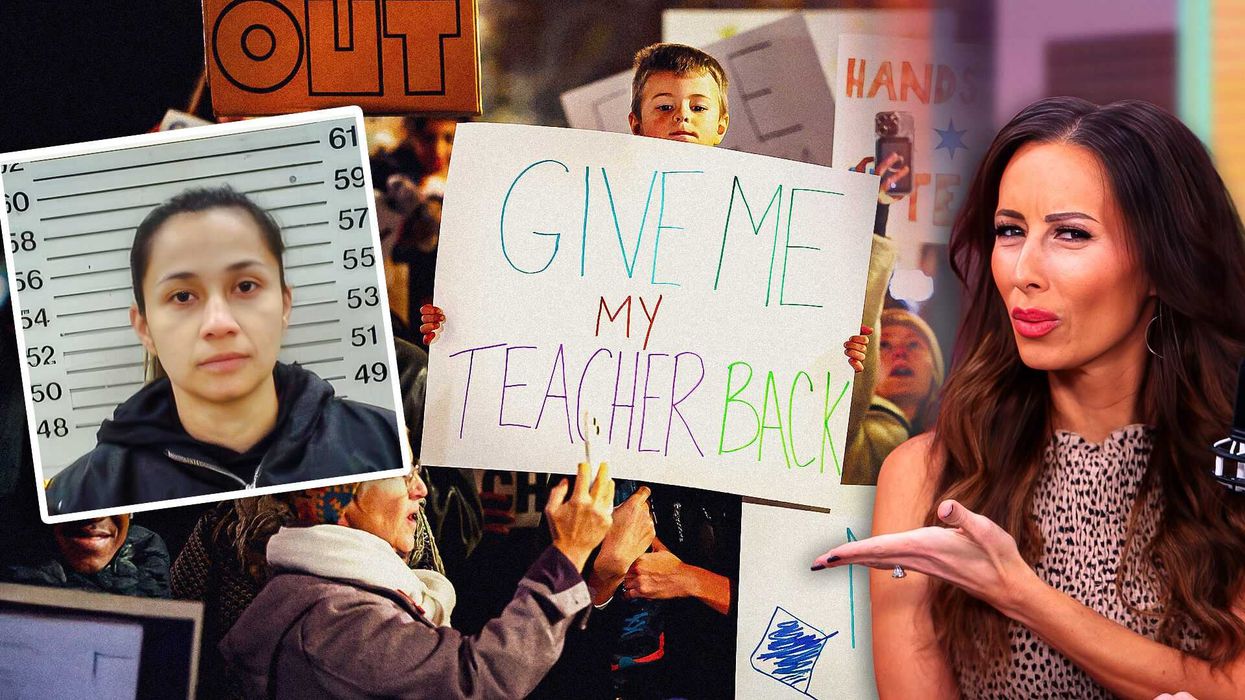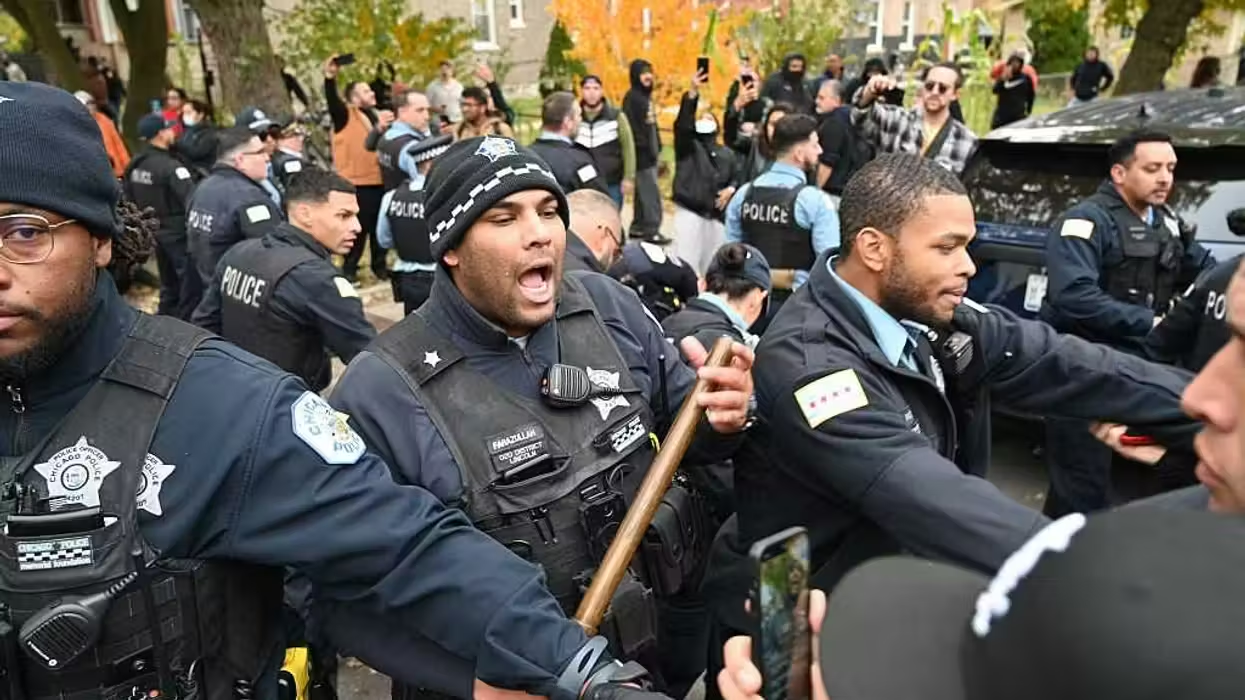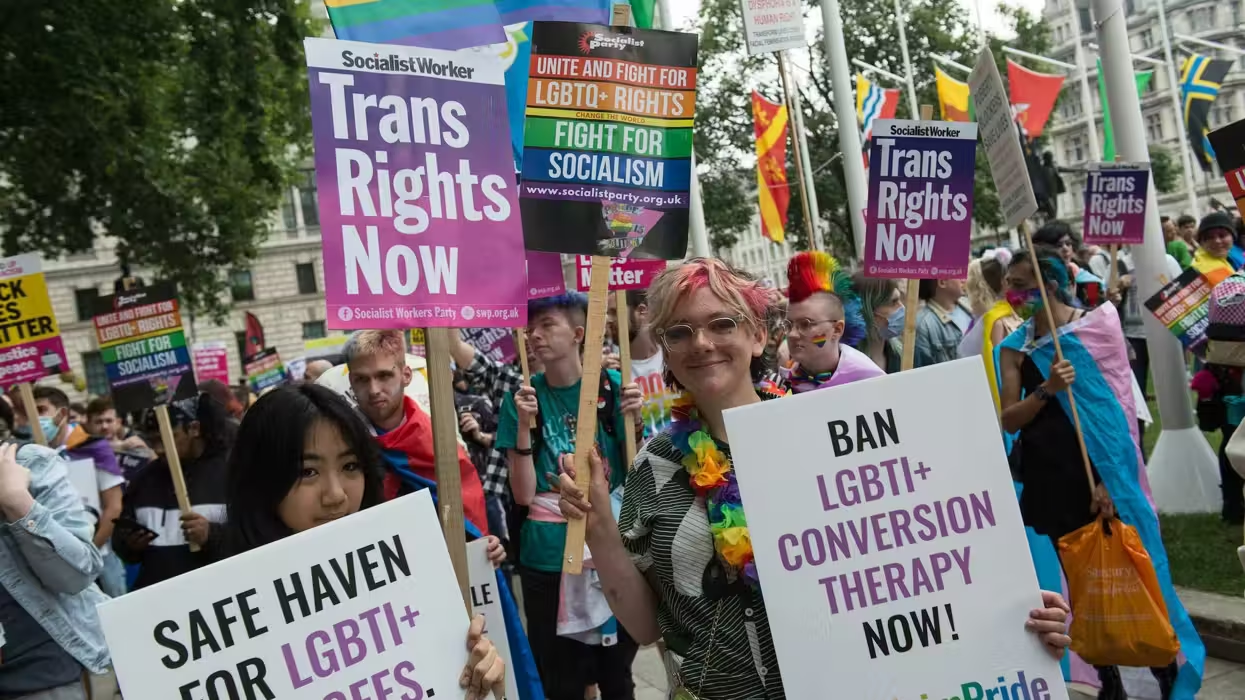
© 2025 Blaze Media LLC. All rights reserved.
Expert: Obama faces tough legal hurdles to easing sanctions against Cuba
December 22, 2014
An expert on sanctions and Cuba policy who also used to run the House Foreign Affairs Committee for Republicans told TheBlaze Monday that President Barack Obama will find it very difficult to take Cuba off the government's list of state sponsors of terrorism, a move he's considering in an effort to reset relations with the island nation.
But Dr. Yleem Poblete also said Congress needs to be on guard as Obama tries this maneuver, and said members may have to be ready to step in with legislation to stop him.
"Congress can't be complacent," she said. "It must be pro-active and pre-emptive."
 An expert on U.S.-Cuba sanctions policy says key parts of President Barack Obama's strategy to ease Cuba sanctions will need to be cleared by Congress or be consistent with laws already passed by Congress.
An expert on U.S.-Cuba sanctions policy says key parts of President Barack Obama's strategy to ease Cuba sanctions will need to be cleared by Congress or be consistent with laws already passed by Congress.
Image: Shutterstock
Obama announced a series of new steps toward Cuba last week, including an easing of trade and travel restrictions, formalized relations, and discussions about taking Cuba off the State Sponsors of Terrorism list and even ending the embargo.
Poblete, who co-founded Poblete Analysis after leaving her job as chief of staff for the Foreign Affairs Committee, agreed that Obama has some limited authority to make some of these changes, such as easing travel rules. But she said Obama's bigger plans are either already guided by federal law, or will require Congress to agree.
"Most of it will require congressional intervention and congressional approval," she said.
One of the more contentious proposals Obama floated is a review of Cuba's placement on the list of countries that sponsor terrorism. Placement on that list opens up countries to additional sanctions and export restrictions.
While the government typically reviews countries on that list each year, Poblete noted that these reviews are guided by federal law, and that Obama has no authority to set up new guidelines for its review of Cuba.
Under federal law, the government has two options for removing countries from the list. One way is to find that there has been a "fundamental change" in the leadership and policies of the targeted country. It must also find the country is not supporting acts of terrorism, and that the government has provided assurances that it will not support terrorism going forward.
The second option is to notify Congress in advance of his decision to remove a country. That report must also include findings showing that the country has not supported terrorism for the last six months, and will not in the future.
"Guess what? Cuba is listed on the State Sponsors of Terrorism list, and there's a number of reasons why," Poblete said. "They cannot, legitimately and credibly, meet either option."
She said there has been no fundamental transformation of the country, and noted that so far, Cuba does not appear to have made any commitment not to sponsor terrorism or terrorists groups. The lack of this commitment drew criticism from several members of Congress last week, who said Obama made concessions to Cuba before Cuba made any of its own.
The State Department's latest report from 2013 shows Cuba has provided safe haven for terrorists. Specifically, that report noted that Cuba has "long provided" safe haven to members of Basque Fatherland and Liberty (ETA) and the Revolutionary Armed Forces of Colombia (FARC).
While the report did say Cuba's relationship with ETA has become "more distant," it said Cuba is still home to more than a dozen ETA members. And while it said Cuba is supporting negotiations between FARC and Colombia, it said Cuba has facilitated the travel of FARC members.
State has found that Cuba still harbors U.S. fugitives, including Joanne Chesimard, who killed a New Jersey State Trooper in 1977. This week, New Jersey Gov. Chris Christie (R) asked Obama to demand her return before taking other steps to normalize relations with Cuba.
Despite these findings, supporters of increased trade with Cuba have said they are soft findings that might easily be reversed by a willing administration.
On the embargo, many have noted that Congress would need to agree to change the law to lift the embargo against Cuba. Obama said he wants to start a discussion with Congress about taking this step, but that effort seems unlikely to go any further.
Under current law, Cuba must find a way to resolve the decades-old dispute over property, which arose when Fidel Castro expropriated $1.8 billion worth of U.S. assets in 1960. Those claims are now worth about $7 billion.
Cuba may be able to satisfy the U.S. Congress by making new commitments toward democratic reform and respect for human and political rights. But again, Cuba has made no visible commitments in these areas, other than to release 53 un-named political prisoners.
Poblete said that in the absence of big changes from Cuba, as required by U.S. law, Obama appears to be on a mission to convince Congress to lift the embargo and remove Cuba from the list of terrorist-sponsoring nations based only on wishful thinking.
"He's ignoring the law on the sanctions component," she said. "It appears he's either ignorant or willfully seeking to ignore the law."
— This story was updated at 3:42 p.m.
Want to leave a tip?
We answer to you. Help keep our content free of advertisers and big tech censorship by leaving a tip today.
Want to join the conversation?
Already a subscriber?
more stories
Sign up for the Blaze newsletter
By signing up, you agree to our Privacy Policy and Terms of Use, and agree to receive content that may sometimes include advertisements. You may opt out at any time.
Related Content
© 2025 Blaze Media LLC. All rights reserved.
Get the stories that matter most delivered directly to your inbox.
By signing up, you agree to our Privacy Policy and Terms of Use, and agree to receive content that may sometimes include advertisements. You may opt out at any time.





